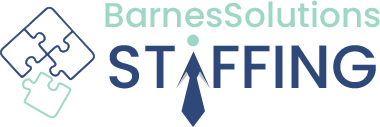The direct staff recruitment industry in Philadelphia, like elsewhere, is experiencing significant transformations driven by technological advancements, changing workforce dynamics, and evolving employer needs. To understand the future of direct staff recruitment agencies in the city, we must examine several key trends and potential directions for the industry.
1. Embracing Technology
The future of direct staff recruitment agencies in Philadelphia will undoubtedly be shaped by technology. Automation, artificial intelligence (AI), and data analytics are becoming integral to the recruitment process. Agencies will need to adopt and leverage these tools to remain competitive.
Prospective Technological Advancements:
AI-driven Matching: Advanced AI algorithms will improve candidate-employer matches, reducing time-to-hire and enhancing candidate quality.
Chatbots and Virtual Interviews: Chatbots will handle initial candidate interactions, while virtual interviews will become more common, allowing for remote screening.
Predictive Analytics: Agencies will use data analytics to forecast talent needs and identify potential recruitment challenges.
2. Remote Work and Global Talent Pools
The rise of remote work, accelerated by the COVID-19 pandemic, has expanded the talent pool for employers in Philadelphia. Recruitment agencies will need to adapt to this new reality, tapping into global talent pools and offering remote hiring services.
Key Developments:
Global Talent Acquisition: Agencies will develop strategies for sourcing and onboarding talent from around the world, increasing diversity and access to specialized skills.
Remote Work Policies: Agencies will assist both employers and candidates in navigating the complexities of remote work arrangements, including legal and tax considerations.
3. Skills-Oriented Recruitment
As industries evolve rapidly, employers are increasingly prioritizing specific skills over traditional qualifications. Recruitment agencies will need to identify and verify these skills effectively.
Skill-Centric Approaches:
Skills Assessments: Agencies will use advanced skills assessments and testing to match candidates with precise job requirements.
Upskilling and Reskilling: Recruitment agencies may collaborate with educational institutions to provide training programs that align with current industry demands.
4. Enhanced Candidate Experience
The candidate experience will continue to be a critical factor in recruitment success. Agencies will focus on providing a positive and engaging journey for job seekers.
Candidate-Centric Strategies:
Personalization: Agencies will tailor their communication and recommendations to individual candidate preferences and career goals.
Transparency: Clear and honest communication regarding job roles, company culture, and compensation packages will be paramount.
5. Navigating Legal and Compliance Challenges
Recruitment agencies must stay abreast of evolving labor laws, immigration policies, and diversity and inclusion requirements. Staying compliant with these regulations is crucial.
Compliance Focus:
Legal Expertise: Agencies will invest in legal expertise or collaborate with legal partners to ensure they are well-informed and compliant.
Diversity and Inclusion: Developing strategies for diverse candidate sourcing and promoting inclusive hiring practices will become standard.
In conclusion, the future of direct staff recruitment agencies in Philadelphia will be shaped by technology, remote work trends, skills-oriented recruitment, candidate experience, and adherence to legal and compliance requirements. Agencies that embrace these changes and remain agile in adapting to shifting employer and candidate needs will thrive in this evolving landscape.





